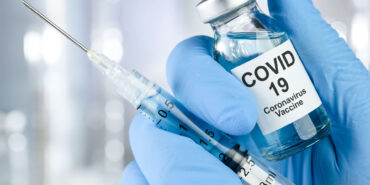
Federal OSHA Halts COVID-19 Vaccination and Testing ETS; Cal/OSHA Votes to Adopt Revised COVID-19 Prevention ETS
The U.S. Supreme Court has issued a stay of Federal OSHA’s emergency temporary standard (ETS) on COVID-19 vaccination, testing and masking, prompting a notice of withdrawal that has been published in the January 26, 2022 Federal Register. The ETS was published in November 2021 and gave employers with 100 or more employees 30 days in which to either 1) develop, implement, and enforce a mandatory COVID-19 vaccination policy; or 2) provide a policy that allows workers to choose whether to get vaccinated or undergo weekly COVID-19 testing. Despite the withdrawal, Federal OSHA indicated it will continue moving forward with the ETS as a proposed rule. For the time being, OSHA plans to focus its resources on finalizing a permanent standard for COVID-19 specific to health care workers, which began in June 2021 as a separate ETS.
Meanwhile, the California Occupational Safety & Health Standards (Cal/OSHA) announced it has made revisions and voted to re-adopt its COVID-19 prevention emergency temporary standards (ETS). Cal/OSHA indicated revisions were made in response to concerns related to the Omicron variant. Through the revisions, CAL/OSHA intends to achieve closer alignment between the ETS and guidelines from the U.S. Centers of Disease Control and Prevention (CDC) and the California Department of Public Health (CDPH) while at the same time making the ETS requirements easier for employers to implement. The emergency standards took effect on January 14, 2022 and apply to most workers in California not covered by the Aerosol Transmissible Disease standard. For more information on the Cal/OSHA COVID-19 ETS revisions see the FAQ sheet. For the full requirements of the Cal/OSHA COVID-19 Prevention Program, see Title 8 sections 3205, 3205.1, 3205.2, 3205.3, 3205.4.
The revisions include:
- Investigating and responding to COVID-19 cases in the workplace: Employers must continue to properly notify employees, employee representatives and any other workers at a worksite of possible COVID-19 exposures within one business day. This section was updated to give employers more clear instructions on how to notify workers who were at the same worksite as the COVID-19 case during the high-risk exposure period.
- Face Coverings: Employees exempted from wearing a face covering due to a medical or mental health condition, or disability, who cannot wear a non-restrictive alternative such as a face shield with a drape on the bottom, must physically distance at least six feet from others and either be fully vaccinated or be tested at least weekly for COVID-19. The testing must occur during paid time and at no cost to the employee.
- Testing and Exclusion:
- Employers are now required to make COVID-19 testing available, at no cost and during paid time, to fully vaccinated employees who are considered a “close contact” with a positive COVID-19 case. This applies even if the “close contact” employees are asymptomatic.
- During outbreaks (3 or more employees) and major outbreaks (20 or more employees), employers must make weekly testing (outbreaks) or twice-weekly testing (major outbreaks) available to asymptomatic fully vaccinated employees in the exposed group where the outbreak or major outbreak occurred.
- Employees who have recently recovered from COVID-19 and those who are fully vaccinated are not required to be excluded from the workplace after “close contact” but must wear a face covering and maintain six feet of physical distancing for 14 calendar days following the last date of contact.
- Return to Work Criteria: The exclusion section of the Cal/OSHA ETS was revised and the new timelines are overridden by the California Department of Public Health (CDPH) isolation and quarantine periods guidance from January 6, 2022. More information can be found on the Isolation and Quarantine fact sheet. The fact sheet indicates when workers are required to be excluded from work due to work-related COVID-19 exposure, they must be paid exclusion pay. Workers should speak with their employers about available exclusion pay. Some exceptions apply (ex. Worker can work from home, or they are receiving disability pay or Workers’ Compensation Temporary Disability Payments).
RHP’s Certified Industrial Hygienists, Health Scientists, and Certified Safety Professionals employ their experience and training to advise and guide industry and business leaders in navigating the uncertainties and challenges presented during and after the COVID-19 pandemic. RHP utilizes knowledge and expertise combined with our experience interpreting and incorporating the regulations and guidance of Federal, State, and local agencies and leading Public Health and institutional resources, to facilitate client responses to the rapidly evolving pandemic concerns of COVID-19. RHP experts are a trusted source for managing, mitigating, and controlling health risks in the workplace through the anticipation, recognition, evaluation, and control of environmental and occupational hazards.
